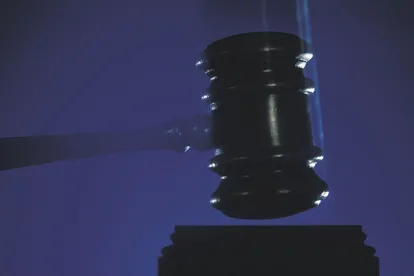A recent appellate ruling may have important implications for online publishers who invite, encourage, and even compensate third-party contributors to post information without prior approval or review.
California's Court of Appeals Second District late last month affirmed summary judgment for the now-defunct online news website Examiner.com in a defamation action brought by an actor, Andy Keegan—whose full name is Andrew Keegan Heying. Mr. Heying starred in the television series Party of Five and in the movies 10 Things I Hate About You, and Independence Day. More recently, he founded and heads "The Full Circle Church," a new-age spiritual community in Venice, California.
In early May 2015, California's Department of Alcoholic Beverage Control conducted a raid at the Full Circle Church and found that kombucha (an herbal tea with an extremely low level of alcoholic content, e.g., less than 1 percent) was being sold there. The government officials issued citations to the event organizers for selling alcoholic beverages without a license, which is a misdemeanor. On May 15, 2015, an article appeared on Examiner.com, headlined "Andrew Keegan Arrested for Selling Illegal Kombucha at a New-Age Temple," which quoted from and linked to an earlier report on FOXNews.com.
Mr. Heying sued Examiner.com—an online platform that hosts articles posted by independent contractors who are eligible to receive monetary payments based upon the number of "hits" their articles registered. Mr. Heying asserted claims for defamation, false light invasion of privacy, negligence, and misappropriation under California state common law and Civil Code §3344. AXS Digital Media Group moved to dismiss the complaint under California's anti-SLAPP statute and Judge Nancy Newman, of the Superior Court of Los Angeles County, granted that motion, finding that Mr. Heying, a public figure, could not produce clear and convincing evidence the article was published with actual malice, as required by the First Amendment.
Mr. Heying appealed, arguing that the trial court judge erred in granting the anti-SLAPP motion because the article did not address a matter of public concern (because it was false), and his complaint raised a reasonable inference that AXS Digital, if not the author of the article, acted with actual malice.
The Court of Appeals first found that the article addressed a matter of public concern, so the anti-SLAPP statute applied. Turning to Mr. Heying's arguments concerning actual malice, the court found that the author of the article, who was an independent contractor, did not act with actual malice because she relied upon the FOX News report, which bore the headline "Andrew Keegan Busted for Selling Kombucha at his New-Age Temple," and she reasonably understood the term "busted" to be synonymous with "arrested." Furthermore, the FOX News article contained a quote, allegedly from Mr. Heying, saying that "he was unaware he had been violating any laws by selling kombucha" (emphasis added).
The heart of Mr. Heying's appeal was his argument that notwithstanding the article author’s state of mind, AXS Digital acted with actual malice because its business model allows independent contractors to post articles directly to the website without any prior review or approval by the website's owners. Importantly, the Court of Appeals rejected this argument. For a plaintiff to establish that a website operator published information with actual malice, the court held, the plaintiff must produce "specific evidence" that the publisher "relied on information from biased sources, made statements in its reports without doing the necessary investigation and due diligence, and made statements with defamatory implication to achieve a pre-conceived result."
Because Mr. Heying had not come forward with any such evidence, AXS Digital was entitled to dismissal of all of his claims under California's anti-SLAPP statute. The court also rejected his argument that AXS Digital "purposefully avoided the truth" because its business model provided "incentive payments" to its contributors based on the number of "hits" on their articles, and allegedly incentivized them to use "salacious terminology" in order to "get more clicks and boost advertisement revenue." The court rejected this "speculative possibility": "that some contributors receive incentive payments based on readership does not by itself support Mr. Heying's theory that the website knowingly or recklessly publishes false stories to boost traffic to the website." Accordingly, the Court of Appeals affirmed the trial court’s ruling dismissing all of Mr. Heying's claims.



 />i
/>i

